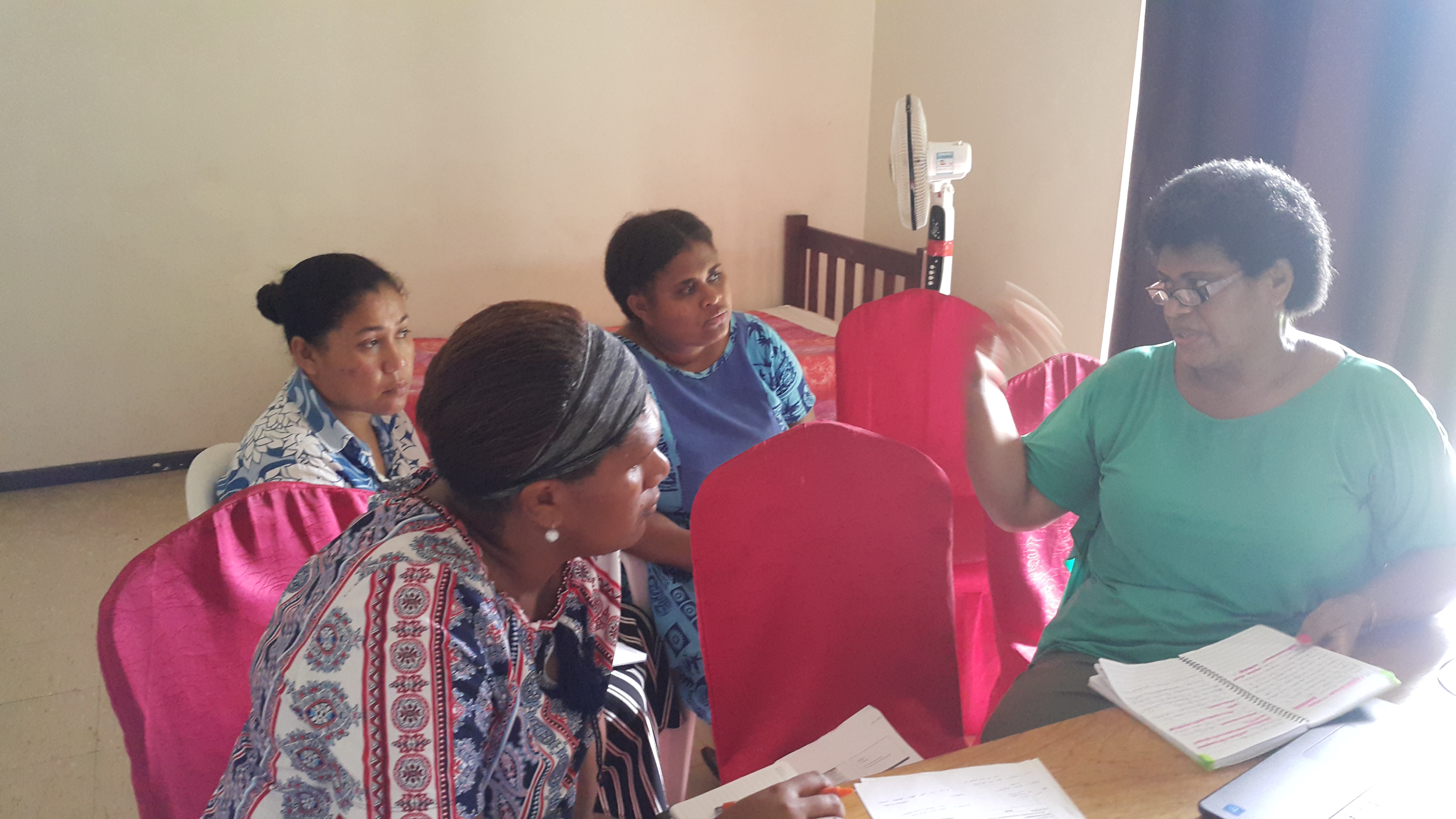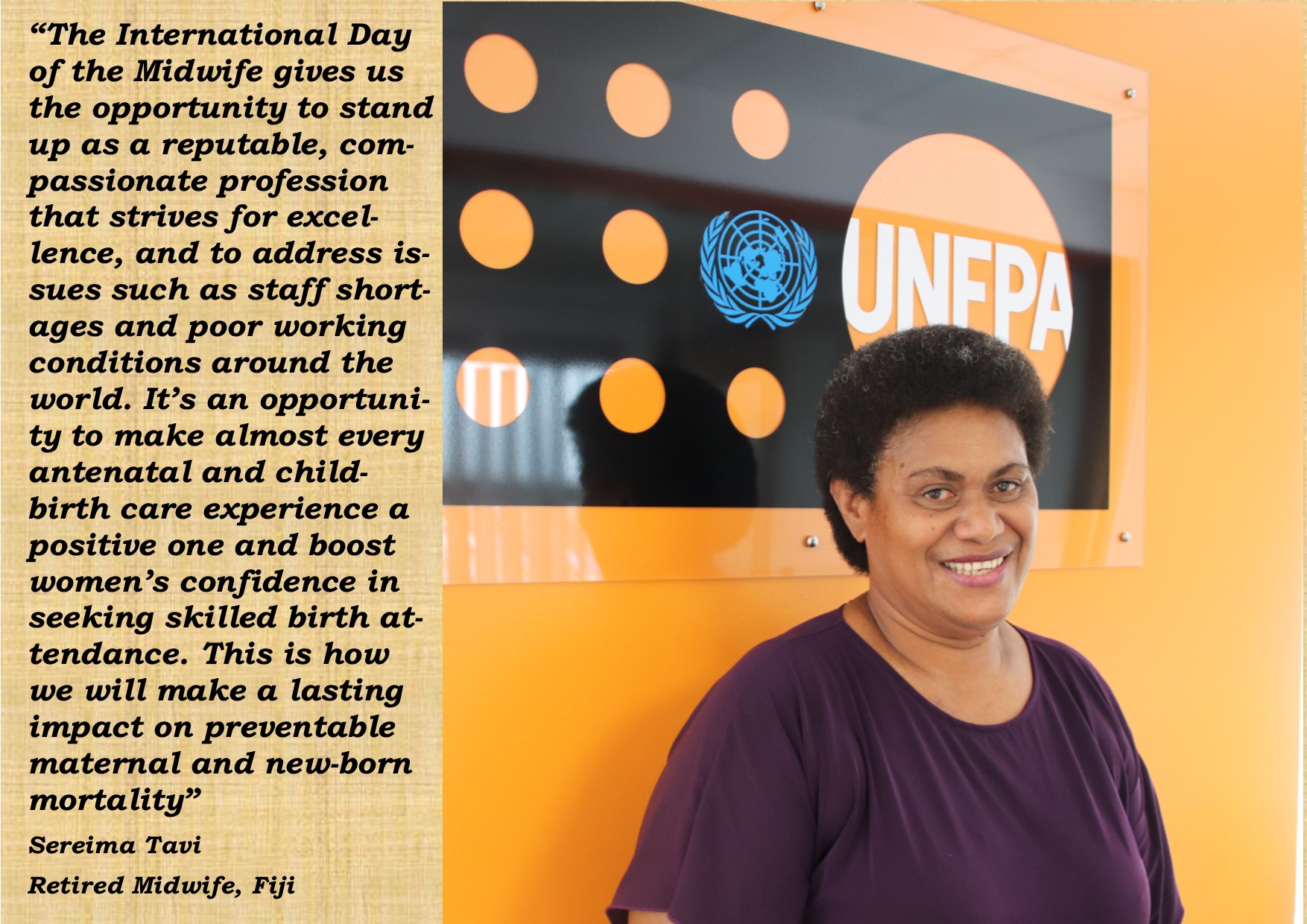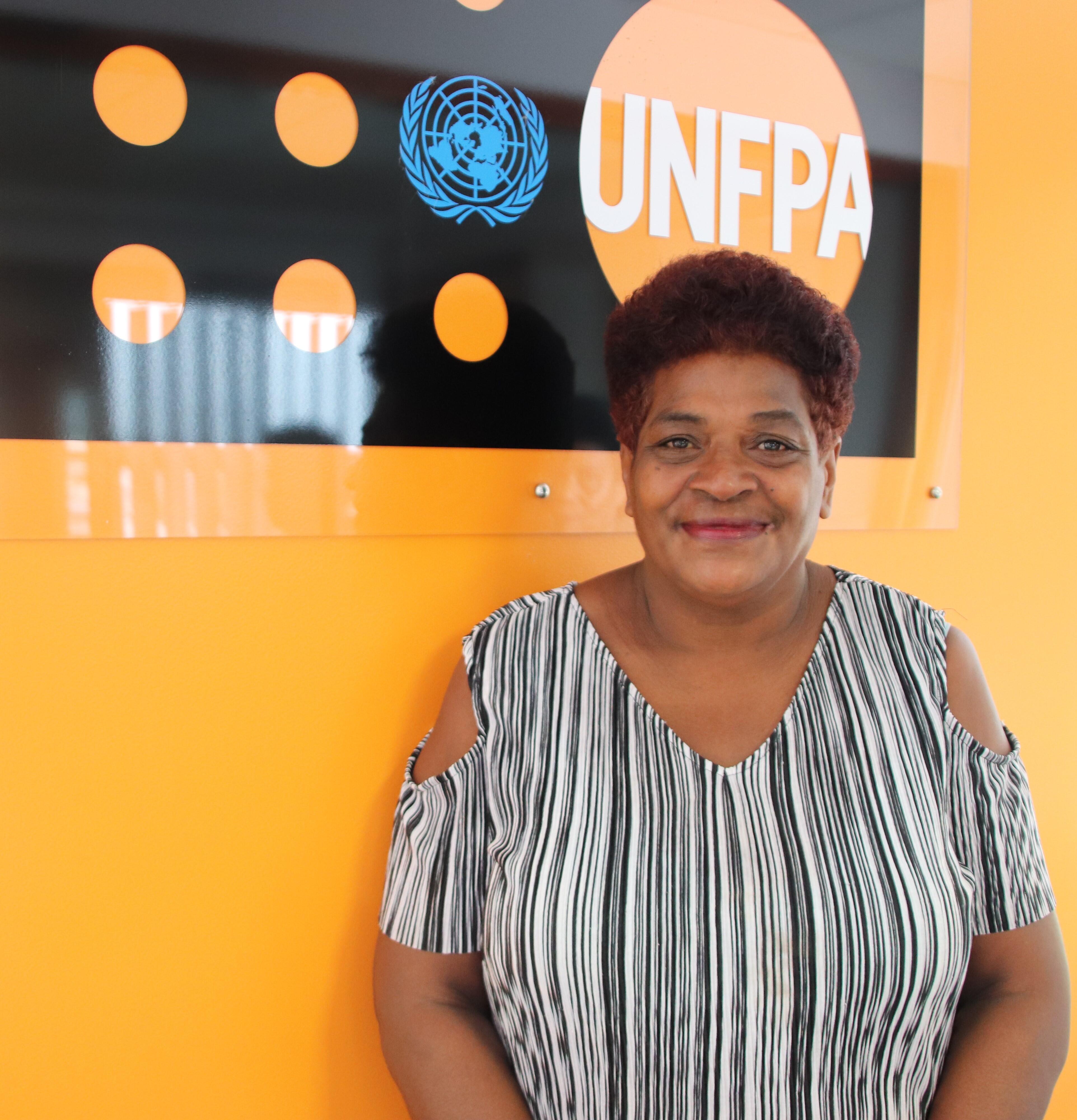Suva, Fiji - Life as a midwife varies so much from day to day – each day brings new challenges. Emma Diloi, a retired midwife from Fiji, recounts that there was never a dull moment for her throughout her entire career. Emma, who dedicated 18 years of her life working as a midwife at the Colonial War Memorial Hospital (CWMH) in Suva, is one of two retired midwives currently supervising midwifery students at the Vanuatu midwifery school while also providing technical support for clinical attachments.
“On our first visit to Vanuatu, with my colleague Sereima Tavi, we faced a few challenges,” said Emma. “Language was one of the barriers that made it difficult for us to communicate with the students pursuing midwifery, as they spoke very little English. Over time, we became familiar with their dialect. Colleagues were initially reluctant to accept us into their circle, but we managed to overcome this by taking our time to closely observe how things are done. This enabled us to blend in better in social situations with the team and with our colleagues, especially in the maternity unit.”
The United Nations Population Fund (UNFPA), through a South-South cooperation initiative in collaboration with the Ministry of Health of Fiji, deployed two Fijian midwives to the Vila Central Hospital in Vanuatu at the end of 2018 to assist the understaffed hospital following the mass retirement of health workers in that Pacific nation a year earlier.
The Vanuatu Government took a decision to retire all employees at the age of 55, which ended up significantly affecting health services as the majority of the employees who were at and above the retirement age were midwives and registered nurses. The absence of this critical cadre of sexual and reproductive health workers strained the health sector in Vanuatu for both public and curative services, from hospital and clinical services to public health programmes.
Emma said that despite these challenges, the staff at the Vila Central Hospital were welcoming of any opportunities to improve services to women and girls, including this South-South initiative. She observed that there were a number of main areas of service delivery which were considered to be below the standard expected of contemporary health facilities. These included, but were not limited to, issues around infection control, occupational health and safety, staffing levels and availability of standard equipment.

Emma Diloi, a Fijian retired midwife, with students in Vanuatu. Image: UNFPA Pacific.
“We started to work very closely with our counterparts in areas that needed improvement as part of capacity building. We mentored and coached the midwifery students, the new graduate midwives and other nurses, and provided one-to-one in-service training support for midwives and nurses,” she explained.
Other technical support that the retired Fijian midwives provided included Early Essential Newborn Care (EENC) practice to all babies in the maternity ward, screening and counselling for mothers during antenatal visits, deliveries, post-natal care and family planning counselling. They also recommended mechanisms for improving infection control within the maternity unit and conducting proper documentation and record keeping during labour and deliveries.
“Our second mission to Vila Central Hospital brought a lot of positive changes for our midwifery students. This has been the sentiment echoed by each of our students, based on how much we have achieved together as a team,” noted Emma.
Mathew Robinson, who is currently pursuing midwifery at Vila Central Hospital, said the coaching lessons provided by Emma and her team have helped him push a step further toward reaching his goals. “I have gained a lot of knowledge and new skillsets through these coaching sessions and through close supervision. I have been able to fill up my log book. Now I have completed most of the procedures. I was not competent with my practices when I was a registered nurse, particularly around family planning and antenatal services. Now I am more confident and I feel empowered to deliver quality care. I would like to encourage men to pursue nursing and midwifery as a career. We need more men in this field!”
Emma stressed that the staff are to be commended for their dedication and hard work, considering the lack of resources at the hospital. They are extremely busy but they remain committed to providing high-quality sexual and reproductive health services to women and girls.
The first time that the UNFPA Pacific Sub-Regional Office supported the deployment of retired Fiji midwives to Vanuatu took place during the humanitarian response to Tropical Cyclone Pam in March 2015 – one of the strongest storms to hit the region in recent years - to support the restoration of health services. This was seen as a positive example of South-South Cooperation within the Pacific region, and three retired midwives were deployed in May 2018 and another eight in November 2018 as a continuation of this successful initiative.
Skilled midwives are the frontline and backbone of sexual and reproductive health care, acting as primary caregivers for women and their babies during pregnancy, labour, childbirth and the postnatal period. They are often the difference between life and death for women and girls, especially in resource-challenged settings. They ensure continuity of lifesaving health care during disasters. Yet there are massive shortages of midwives around the world.
UNFPA – the United Nations’ sexual and reproductive health agency - works at the global, regional and national levels to scale up midwifery services, support training and capacity building, and provide critical supplies and materials to midwifery institutions to ensure that every pregnancy is wanted, every childbirth is safe, and – eventually - every young person’s potential is fulfilled.
UNFPA and partners mark the International Day of the Midwife on May 5 each year. For more on IDM, visit:
https://www.internationalmidwives.org/icm-events/idm-international-day-of-the-midwife.html




